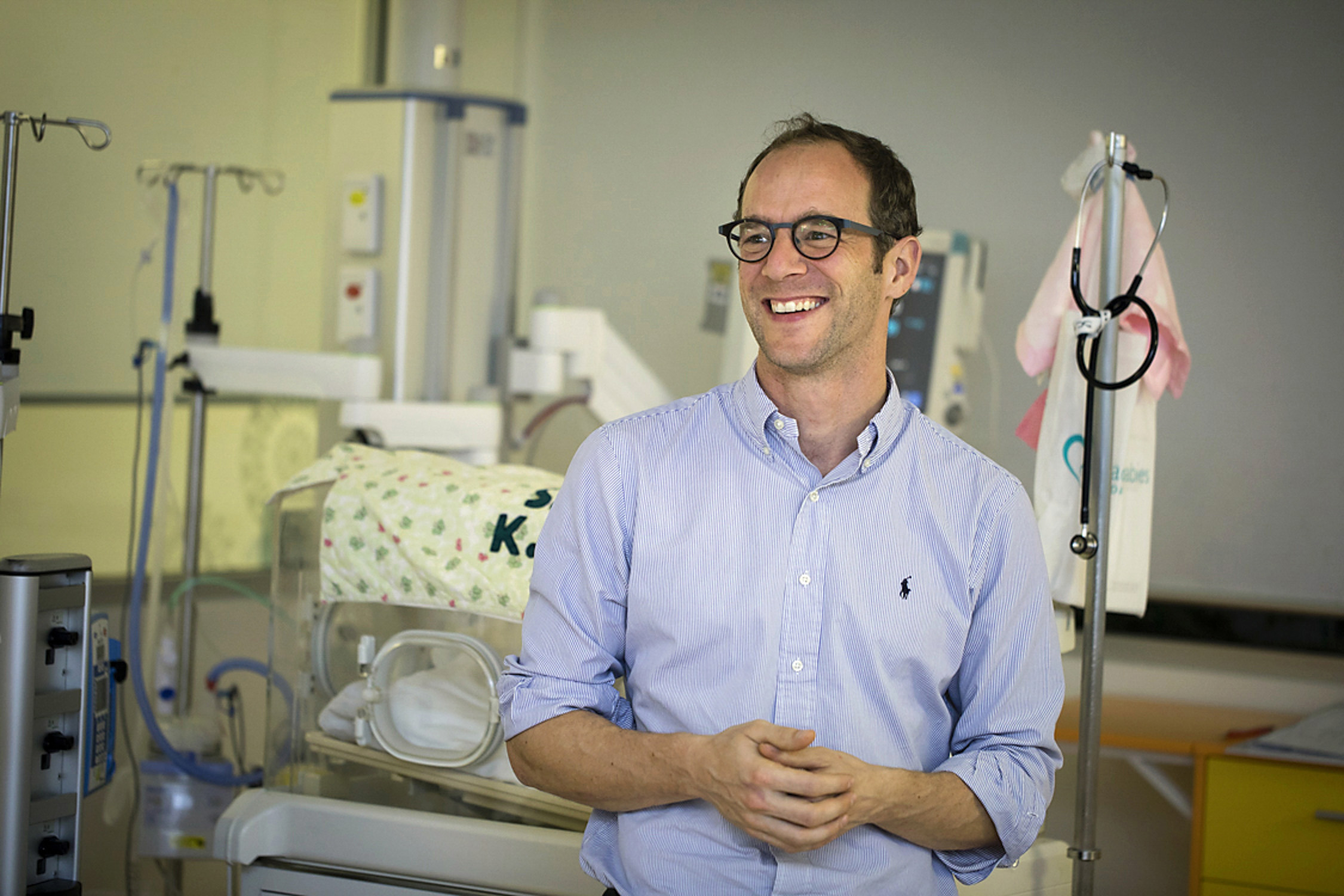Tropical treatment showing promising results
 Neonatal researcher Professor Tobias Strunk
Neonatal researcher Professor Tobias Strunk
The scent of coconut oil is more likely to be associated with tropical holidays than a stay in hospital but that could be about to change, thanks to Child and Adolescent Health Service-led research.
A 2016 study into the oil's ability to protect the skin of premature infants produced such impressive results that it is now being conducted on a much larger scale – in 17 centres across Australia and New Zealand – to validate and extend those findings.
The early study – led by consultant neonatologist Professor Tobias Strunk at King Edward Memorial Hospital – has also spawned 3 further projects that are now underway across Perth Children’s Hospital.
Impetus for Tobias’ original project was the need to find a means of protecting the skin of the hospital’s most vulnerable infants while the idea to trial coconut oil was sparked by a paper he had read.
The fragility of these babies’ skin puts them at increased risk of developing sepsis,’ Tobias explains.
He says the study’s intervention proved extremely popular with both nurses and families, with 97 per cent of families invited to participate in the first trial, accepting the offer.
‘It was the first ever trial we were able to finish ahead of schedule,’ he says.
‘I think that for parents, being able to apply coconut oil once a day is an opportunity to interact with their baby in a positive and meaningful way from day 1.’
More importantly, however, when compared with infants who received standard care, Tobias reveals that the babies treated with coconut oil had:
- less infection
- fewer bad bacteria on their skin
- more good bacteria on their skin
- better overall skin condition.
As a result of these findings, since 2017 more than 1500 babies weighing less than a kilogram have had their skin treated with coconut oil as part of routine care at KEMH. This practice is likely to be replicated well beyond WA if the results of Tobias’ 2016 study are repeated in the multi-centre trial he is now leading which is due to finish later this year.
At PCH, the 3 spin-off studies are investigating the oil’s potential as an alternative to therapies currently offered to eczema, burns and cancer patients.
In the eczema and burns studies, coconut oil is applied topically to the skin, while in the cancer project it is incorporated into a mouthwash.
Tobias explains that severe mouth ulcers are a common side effect of chemotherapy.
‘They can cause severe damage to the lining of the mouth, eventually causing it to die off,’ he says.
‘To reduce the risk of infection associated with the damage, children are given a mouthwash to kill bacteria in their mouths.
‘But it stings and tastes bad, so they don’t like using it.
‘Having a mouthwash with coconut oil is being better received by many of the children.’
Tobias says both the cancer and burns studies – led by professors Nick Gottardo and Fiona Wood respectively – are world firsts, while the eczema study – led by Michael O’Sullivan – is second only to a small trial conducted in Italy.
Tobias says the coconut oil being used in the research comes from an Australian company which sources its product from a farm in Fiji. He says the farm is currently the only place producing coconut oil of a sufficient quality to ensure the babies’ safety.

